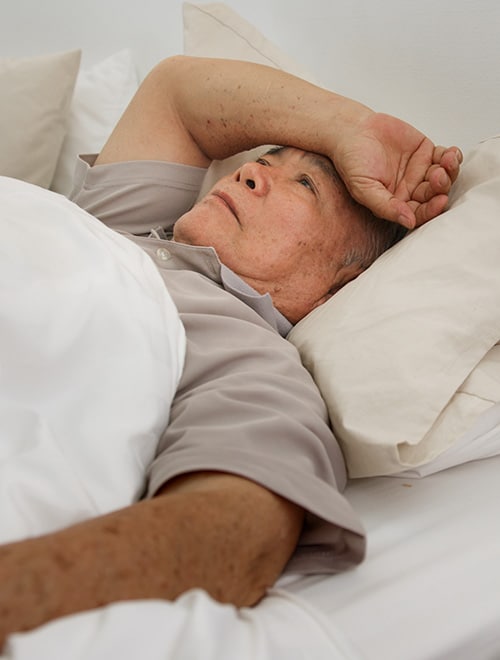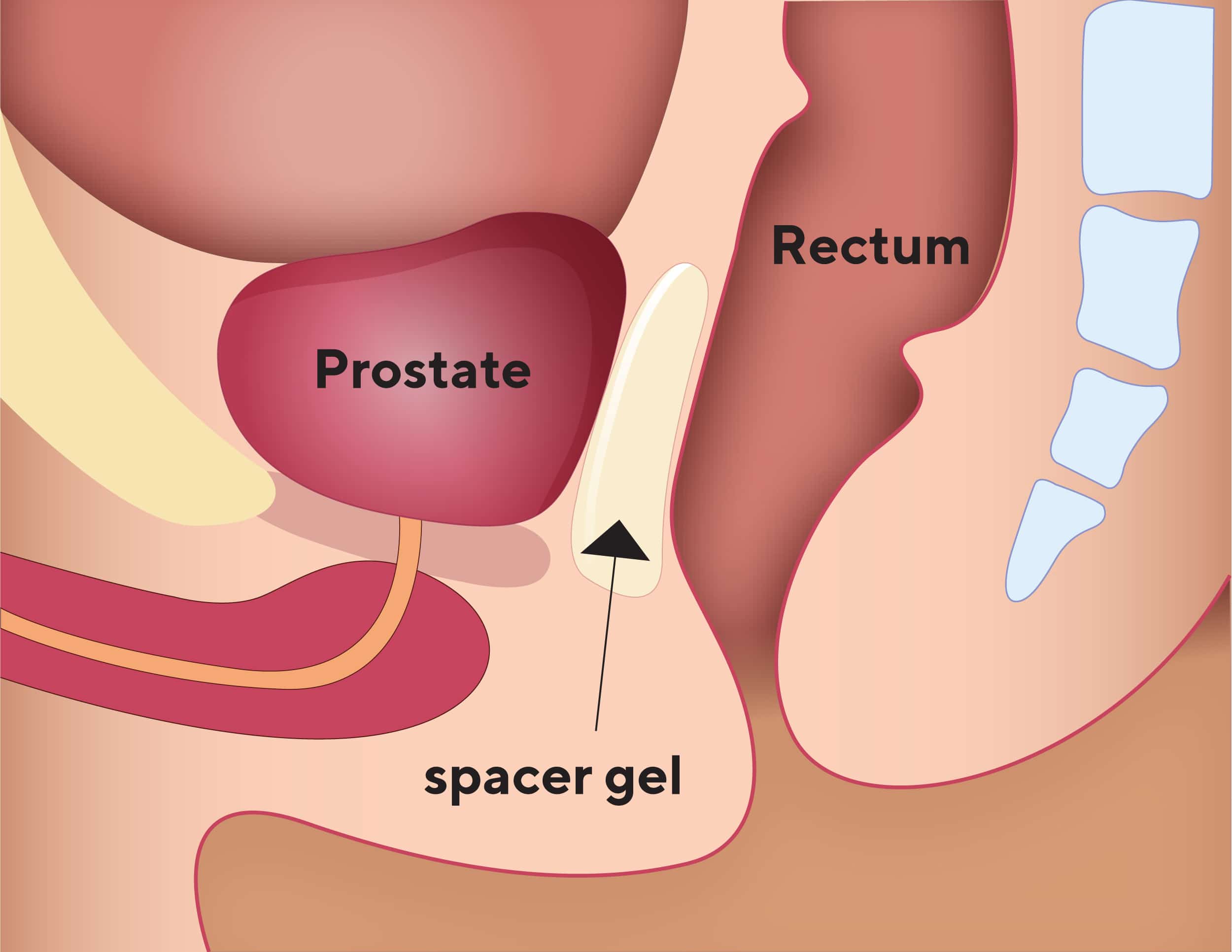- 4 min read
Prostate cancer treatment and bone health
Prostate cancer treatments, in particular hormone therapy and chemotherapy, can affect bone health and may cause side effects.
Your bones can be affected by prostate cancer treatment in two main ways:
- Damage to your bone marrow from chemotherapy
- Loss of bone mass and strength from hormone therapy
The aim of this section of your toolkit is to help you understand the possible side effects of prostate cancer treatments on your bone health and function, and how they may be managed.
How can chemotherapy affect your bone marrow and what are the possible effects?
Chemotherapy targets rapidly dividing cancer cells. However, it can also damage other healthy cells that divide rapidly, such as those in your bone marrow (the inner part of your bone that makes new blood cells). This damage is temporary but can reduce your levels of important cells in your body including:
- Red blood cells – low levels can cause anaemia, which can make you feel very fatigued (tired), short of breath and weak
- White blood cells – these are important for your body’s immune system, and if your levels get too low (also called neutropenia) it can make it harder for your body to fight off infections
- Platelets – low levels of platelets in your blood means you can bruise or bleed more easily
How can you manage the effects of chemotherapy on your bone health?
Anaemia (caused by low red blood cell levels) is best managed by ensuring you have enough iron and vitamin B12 in your body. This is done through a simple blood test that your doctor or healthcare team can organise for you. Once you have these results your doctor may recommend iron or vitamin B12 supplements and/or refer you to a dietitian about an eating plan that is rich in these nutrients.
If you have low white blood cell levels it is important you take precautions to avoid infection by washing your hands more often and staying away from people who are sick. A member of your healthcare team can talk to you about ways of reducing the risk of infection and how to increase your white blood cell levels.
When you are on chemotherapy it is always best to talk to your doctor if you have any signs of a cold, flu or other infection.
Always seek urgent medical help if you have signs of an infection, as you may need treatment with antibiotics. These symptoms include:
- Fever – temperature higher than 38°C
- Chills
- Severe sweats
- Body aches
How does hormone therapy affect bone health?
strong. Hormone therapy reduces the levels and effects of testosterone. This can cause your bones to lose calcium, making them less dense and more brittle. This can begin very soon after starting treatment.
The longer you are on hormone therapy the greater the affect it may have on your bones. If you have severe bone thinning and very low bone density, this is called osteoporosis. Osteoporosis is a disease that increases your risk of bone fractures.
Before you start hormone therapy, it’s important to tell your doctor and healthcare team if you:
- Are taking other medications – some medications can increase the risk of osteoporosis
- Already have osteoporosis
- Have had any bone fractures in the past
- Have close family members who have had or have osteoporosis
This information can help your healthcare team, manage your hormone therapy and support your bone health.
How can you manage the effects of hormone therapy on bone density?
There are several ways that you can manage the risk of osteoporosis while on hormone therapy, including:
- Calcium – make sure you are getting enough calcium in your diet, such as from cheese, milk, yoghurt, tinned sardines, tofu and broccoli
- Vitamin D – your body needs vitamin D to absorb calcium, so it’s important you get enough vitamin D – you get vitamin D when your skin is exposed to the sun over the day (it is important not to get sunburnt) and it’s also found in some foods, such as oily fish, egg yolk and liver
- Healthy weight – maintaining a healthy weight can help to keep your bones healthy. If you are underweight, you may have a higher risk of bone thinning and if you are overweight, you may have an increased risk of fracturing week bones
- Stop cigarette smoking – there is a direct relationship between smoking and thinning bones – even stopping later in life can help reduce the amount of bone you lose
- Exercising – regular exercise can help you maintain healthy bones. The most effective forms of exercise to protect your bones are:
Weight-bearing exercise, such as fast walking, jogging, dancing or walking upstairs
Resistance training, such as lifting weights
Before starting any exercise regime, especially if you do not exercise at all, or making any dramatic changes to your diet, it is best to talk to your healthcare team for advice, they can refer you to a specialist exercise physiologist who can design a program tailored to your health situation.
Also talk to your doctor or healthcare team about whether you need Calcium, vitamin D and/or other dietary supplements. They can make sure that these supplements are safe to take with your current medication.
You may need to have a blood test done to check your levels of calcium and vitamin D.
Looking after yourself and general bone health
You can also look after yourself and your general bone health and wellbeing with diet, exercise and lifestyle changes.
Follow the links below to find out more:
Remember, you can always ask your GP, PCFA nurse or a member of your healthcare team for advice or access to further resources or support.
Key Points
- Hormone therapy and chemotherapy are treatments that can affect your bone health
- Chemotherapy can damage your bone marrow where your blood cells are made – this can increase your risk of anaemia, infections and bruising
- A simple blood test can show if you have anaemia, which can make you feel very tired, or low levels of white blood cells, which can make you more prone to infections
- Hormone therapy reduces the levels of testosterone (a hormone that keeps your bones strong), which causes your bones to lose calcium and become less dense and more brittle. If this is severe it can lead to osteoporosis and bone fracture.
- You may be recommended specific vitamin and mineral supplements, dietary, lifestyle or exercise regimes that can help with the effects on your bone health from these treatments






